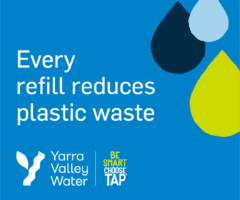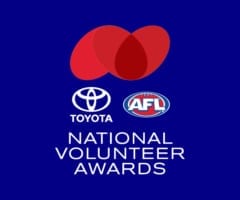A Changing Landscape
Phil Murton – EFL CEO
Last week the EFL met with senior club Presidents following the recent release of AFL Victoria’s Community Club Sustainability Program (CCSP).
What started out as a working party investigating player payments has, as a result of research and feedback, morphed into a much more detailed and structured program encompassing five key club pillars: Competitiveness, Sustainability, Development, Integrity and Enforcement/Penalties.
The clear message from clubs across the state to a survey conducted in 2014, including a strong response from EFL clubs, was that they wanted something done.
The key components of the CCSP are a player points system, salary cap, potential penalties and importantly, education for both clubs and players.
For clubs it’s on the role they play in upholding the integrity of the game, and for players it’s the role they play in ensuring the long term viability of clubs and the game. This includes developing an understanding of the time, effort and money it takes to run a footy club.
At the core of the program and each of the pillars is the lifeblood of local footy, club volunteers. The clear message from the feedback received by the working party was that the current environment is putting too much strain and pressure on club volunteers, and that years of players controlling the market has almost reached tipping point.
As we spoke to the Presidents this week, a key point of the discussion was the challenge of finding their successor, and how the current system doesn’t encourage people to put their hand up to be involved. It’s a blight on the game that people across the state are losing their motivation to become involved in local footy clubs.
While we appreciate not every club will want to embrace all aspects on the program, a comprehensive review of existing systems showed in isolation they would be ineffectual.
The points system developed as part of the CCSP differs from any of those currently in use, in that it categorizes local footballers into three categories, premium, senior or development, each with their own points ranking. The failings of previous systems, where the best player in the league was worth the same points as the guy in the back pocket in the bottom team, meant the movement of those players who effect the outcome of games still favored successful and better resourced clubs.
The working party understand there is a fair amount of skepticism regarding the ability of a salary cap to be enforced. While it’s acknowledged there will be limitations on the powers of leagues and AFL Victoria, the feedback received this week, including from some of our better resourced clubs, is that they believe they are currently spending too much and welcome a system, whatever its potential failings that puts a ceiling on payments and the current yearly inflation. They want a mechanism that helps them to say no to player’s demands.
The workings of salary caps in the VFL, SANFL and WAFL will all contribute to what is believed to be a system that will work, where the aim isn’t to try and reduce everyone to the lowest common denominator, but to limit the gap between what some clubs pay players, against what others can pay by initially reducing and then limiting growth at the top end. Importantly, with some big penalties for those that are proven to cheat, there will be significant disincentive for doing so.
The idea of cooperative competition is one which has been embraced by sports all around the world to enhance competitions. It’s why salary caps, drafts, FIFA fair play and other systems are readily accepted. It’s not, therefore, unreasonable for local footy, with many clubs operating in a semi-professional environment, to impose both monetary and player movement restrictions in order to enhance the game and the viability of clubs.
Over the next few weeks the point’s framework will be tested across current team lists through our four divisions and across the state and the results of this will demonstrate if, how and when it could be implemented fairly. Points systems still allow for considerable movement of players, but the likelihood of clubs being able to recruit significant numbers of AFL, VFL, TAC Cup and premium community players will be reduced.
While there is still significant work to be done, the reception of the CCSP outlined by the working party has been positive across the state and if the programs outlined can be delivered in the coming years, it should help create a much more sustainable framework for football across Victoria for the future.
More Information HERE: http://bit.ly/1JreiRE









































